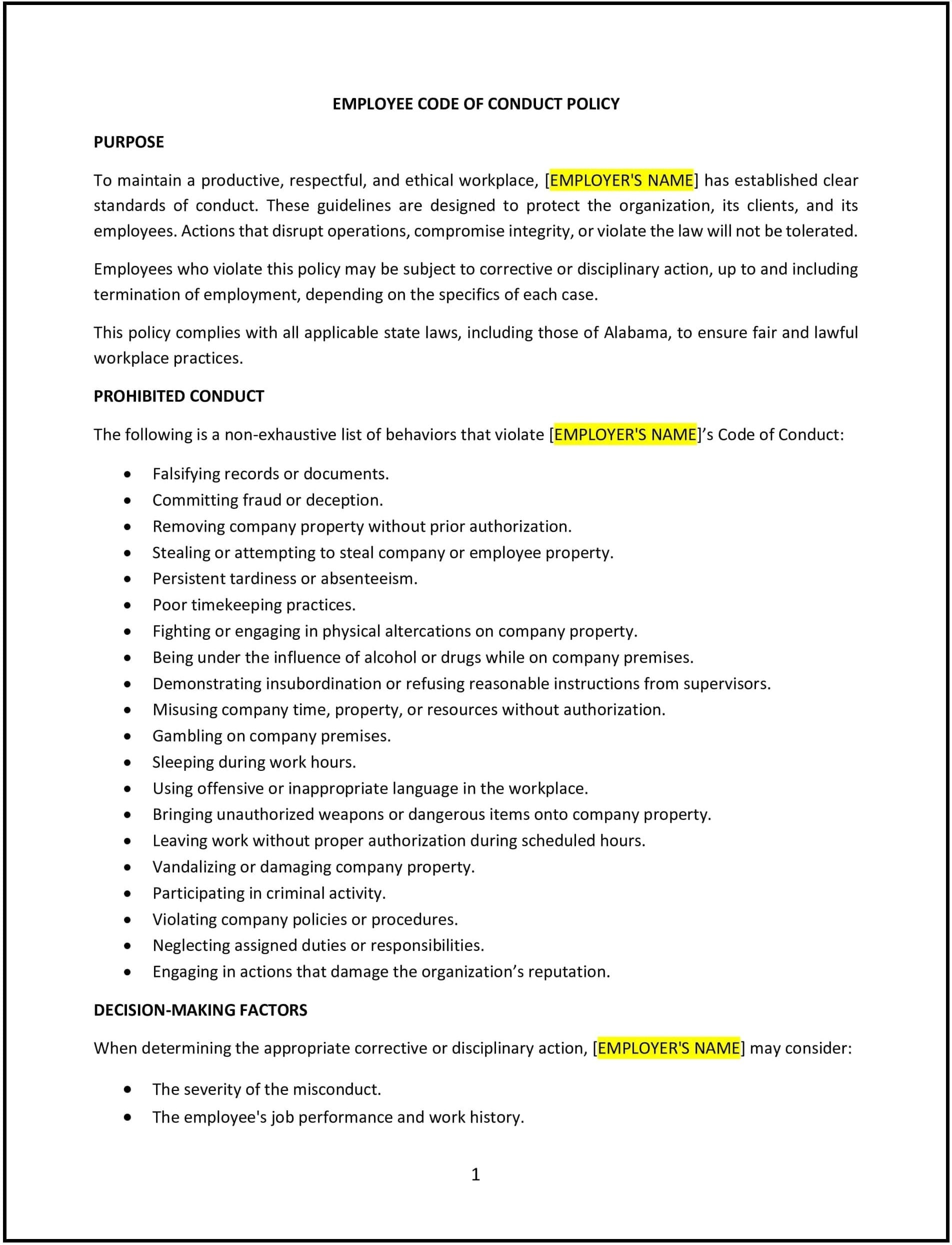Got contracts to review? While you're here for policies, let Cobrief make contract review effortless—start your free review now.

Customize this template for free
Standards of conduct policy (Alabama)
A standards of conduct policy outlines expectations for employee behavior, fostering a professional, respectful, and productive workplace. For SMBs in Alabama, this policy sets clear guidelines for workplace interactions, performance, and compliance with company values and legal requirements.
This policy defines acceptable and unacceptable behaviors, helping businesses maintain a positive work environment while addressing potential issues consistently and effectively.
How to use this standards of conduct policy (Alabama)
- Define behavioral expectations: Clearly outline acceptable workplace behaviors, such as punctuality, teamwork, and adherence to company policies.
- Prohibit misconduct: Specify prohibited behaviors, such as harassment, discrimination, theft, or insubordination, and link to related company policies where applicable.
- Address performance standards: Establish expectations for job performance, including meeting deadlines, producing quality work, and adhering to safety protocols.
- Include disciplinary actions: Detail the potential consequences for violations, such as verbal warnings, written notices, or termination.
- Emphasize reporting procedures: Provide instructions for employees to report misconduct or violations of the policy confidentially and securely.
Benefits of using a standards of conduct policy (Alabama)
A standards of conduct policy creates a framework for a professional and cohesive workplace. Here’s how it helps:
- Promotes professionalism: Encourages behaviors that reflect positively on the company and support a productive work environment.
- Ensures consistency: Establishes clear guidelines and consequences, reducing ambiguity and potential conflicts.
- Enhances accountability: Holds employees responsible for their actions and adherence to workplace expectations.
- Reduces risks: Minimizes the likelihood of legal issues or reputational damage due to inappropriate conduct.
- Supports compliance: Aligns workplace practices with Alabama and federal laws, fostering a culture of responsibility.
Tips for implementing a standards of conduct policy (Alabama)
- Provide regular training: Educate employees on expected behaviors and the importance of maintaining a professional workplace.
- Lead by example: Encourage managers and leadership to model behaviors outlined in the policy.
- Address issues promptly: Investigate and resolve policy violations quickly and fairly to maintain trust and accountability.
- Ensure accessibility: Make the policy available to all employees through the company handbook or digital platforms.
- Review periodically: Update the policy to reflect evolving workplace dynamics, legal changes, or feedback from employees.